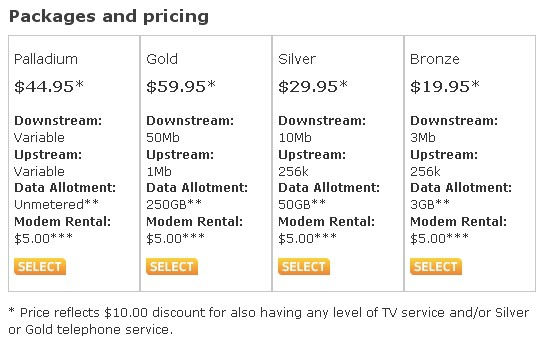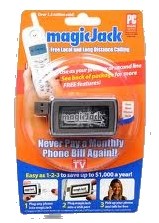 Since federal courts ruled that corporations are people, shouldn’t that mean those corporations also deserve the same privacy rights you and I enjoy?
Since federal courts ruled that corporations are people, shouldn’t that mean those corporations also deserve the same privacy rights you and I enjoy?
AT&T intends to find out at the U.S. Supreme Court in the case of FCC v. AT&T Inc., an effort to win privacy rights for itself and keep potentially embarrassing documents out of the hands of third parties.
At least one court — the U.S. Court of Appeals for the Third Circuit, which includes the very-business-friendly state of Delaware, agreed with AT&T. It ruled that since a corporation is also defined as a “person,” it deserved enhanced protections available to ordinary citizens.
In AT&T’s world, that includes adjectives — all things personal, as in “personal privacy.”
The implications of such an interpretation are stunning, and judicial activism on this scale would deliver a golden platter of new rights to corporate interests that would wipe away oversight and more than a century of accepted business law.
AT&T could use its new powers to deny requests for documents and other materials, on the principle it would violate its privacy and potentially “embarrass” the company. AT&T as an entity could get the right to remain silent and enjoy double jeopardy protections from repeated investigations.
 It would be like watching a Law & Order episode with a corporate logo propped up at the defense table.
It would be like watching a Law & Order episode with a corporate logo propped up at the defense table.
Overreach much, AT&T?
Many members of the U.S. Supreme Court apparently thought so during last week’s arguments, judging from the astonished reactions to AT&T lawyer Geoffrey Klineberg’s reasoning.
“Anything that would embarrass the corporation is – is a privacy interest?” Justice Antonin Scalia asked. “You talk about personal characteristics. That doesn’t mean the characteristics of General Motors. You talk about personal qualities. It doesn’t mean the qualities of General Motors. [The ‘personal privacy’ of a corporation] is a very strange phrase to me.”
Chief Justice John Roberts was also skeptical of AT&T “adjective”-shopping, noting several examples of adjectives with different meanings from their root nouns: “craft and crafty; squirrel and squirrely; pastor and pastoral.”
AT&T is no stranger to the federal court system, pouring millions of dollars into a range of legal actions that suggest the company takes its “Rethink Possible” slogan to literal extremes in some business-friendly legal venues. [Stop the Cap! covered an earlier California case where AT&T argued consumers do not have the right to file class action lawsuits against the company.]
At Issue: Earlier AT&T Wrongdoing
In 2004, SBC Communications (which now owns AT&T) overcharged the government to provide technology services to several Connecticut schools, under the government’s E-Rate program (funded by telephone ratepayers). After earlier abuses in the program were exposed and the federal government was threatening to expand investigations, SBC turned themselves in and handed over documents demanded by the Federal Communications Commission. In return for its cooperation, AT&T got to admit no wrongdoing, but did pay a half-million dollar fine.
That didn’t sit well with CompTel, a Washington-based phone company trade association. In 2005, Mary Albert, the group’s assistant general counsel e-mailed a request for copies of the documents collected by the FCC in the case.
“I made the request because I was very surprised to see the FCC enter into a consent decree in a case like this,” Albert said. “There has been a serious problem with E-Rate fraud over the years. I don’t mean to accuse AT&T of fraud, but there were clearly [enough] problems with its billing [to the program] that it reimbursed the government.”
Under federal law, documents collected by the government have to be made public under the Freedom of Information Act (FOIA), so long as those documents do not violate national security or expose certain personal, private information (typically home addresses, phone numbers, Social Security numbers, etc.) Companies also have long-standing, existing exemptions protecting confidential trade secrets and other proprietary business information.
Albert expected to receive documents with “blacked-out” information protecting AT&T’s trade secrets, but instead she ended up with nothing.
AT&T argues the release of -any- of the documents would embarrass the company and violate its personal privacy. It demanded, and got the FCC to withhold release of the documents and the dispute has been working its way through the court system.
The FCC argues corporations can’t sue over invasion of privacy. Why? Because they are an entity, not a person.
How does someone violate the privacy of a corporate entity that doesn’t live, breathe, or even blush?
Legal observers say the case isn’t really about protecting AT&T from potential embarrassment — it’s about curtailing the government’s right to request and receive documents from companies as part of its oversight process and to investigate potential wrongdoing.
On cue, Lawrence J. Spiwak, president of the Phoenix Center for Advanced Legal & Economic Public Policy Studies (which receives substantial funding from AT&T), argues AT&T’s arguments have merit because if corporations are not protected under FOIA’s law-enforcement exemption, they will be less forthcoming to the government.
In other words, if you don’t give AT&T what it wants, it will bury, shred or hide important documents when regulators come looking.


 Subscribe
Subscribe










